Mother and baby home compensation cut off 'insulting'
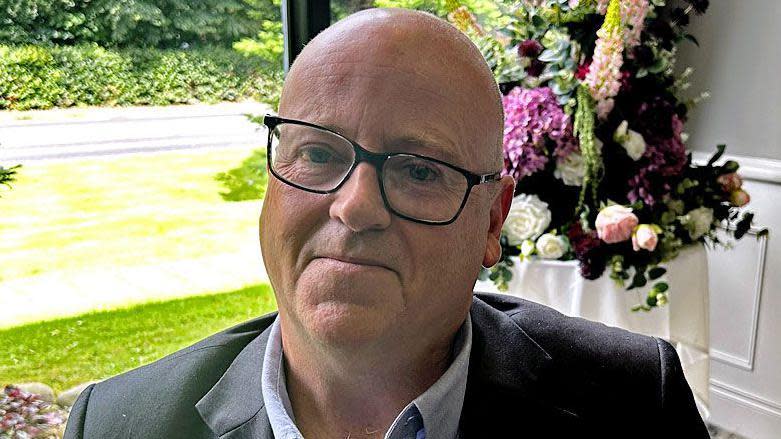
Survivors of institutions for unmarried mothers in Northern Ireland have said the families of all victims who have died should be able to apply for compensation.
The devolved government in Belfast is consulting on a financial redress scheme and public inquiry, and is planning to offer payments of £10,000.
But proposals to limit the scheme for the families of deceased victims have been branded as "insulting" by some survivors.
More than 10,000 pregnant women and girls passed through the secretive institutions, which were largely run by religious orders, from the 1920s until the 1990s.
A public inquiry will investigate issues including claims of forced adoption, abuse and neglect.
“The whole system was set up to stop children from finding their mothers and to prevent mothers from finding their children," said Mark McCollum.
His personal experience has driven his desire to help fellow survivors of mother-and-baby institutions get answers and accountability and encourage them to take part in the consultation.
Marie Arbuckle grew up in Northern Ireland, but was sent to an institution in Dublin when she was 17.
“We’re getting older, and the truth needs to be out there,” she said.
“We weren’t allowed to bond with our babies because we were told they weren’t ours - even though we were meant to bathe them and feed them every day.”
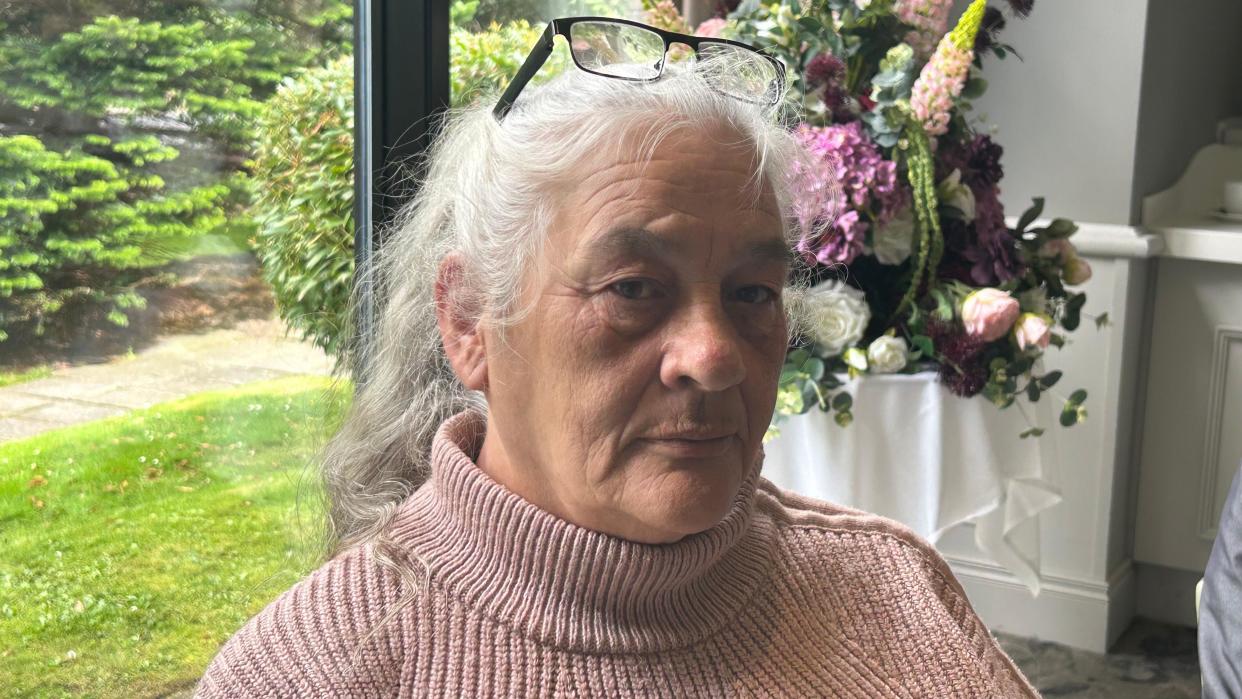
Mark McCollum said proposals for how mother and baby home compensation claims could be made posthumously were "insulting".
It is proposed that there would be a “standardised” payment of £10,000 to women who were in the institutions during a specific time period, and the children who were born to them.
On top of this, there would also be an individually assessed payment, in which each person would be given different amounts based on the harm they suffered.
However, the consultation suggests that posthumous claims could only be made by the families of victims who died after November 2021.
That date was chosen as it was when the Northern Ireland Assembly agreed to set up a scheme and was therefore the "date that the deceased may have formed an expectation that redress would be paid”.
In essence, anyone who died before then would not have known there was a possibility of compensation and would not have expected it.
'A wee girl who did nothing wrong'
Mark was born in Newry in Northern Ireland, where his birth mother Kathleen McGuire had been sent to the Marianvale mother and baby home.
Kathleen was among the women and girls who spent time in what were known as Magdalene Laundries, made to do unpaid labour, such as washing clothes.
Mark explained: “She was a wee girl from Derry, who did nothing wrong.
"She became pregnant, and was sent off to be punished, for this mortal sin she had committed.”
Mark was adopted from a nursery in County Donegal, in the Republic.
Until the 1990s, there were checkpoints on the land frontier.
“Babies were being moved across the border, at a time when you couldn’t take shoes or butter across the border,” Mark said.
“It wasn’t just nuns and priests who knew what was going on. You had social workers, healthcare staff, nurses, who were all complicit in what happened to the girls.”
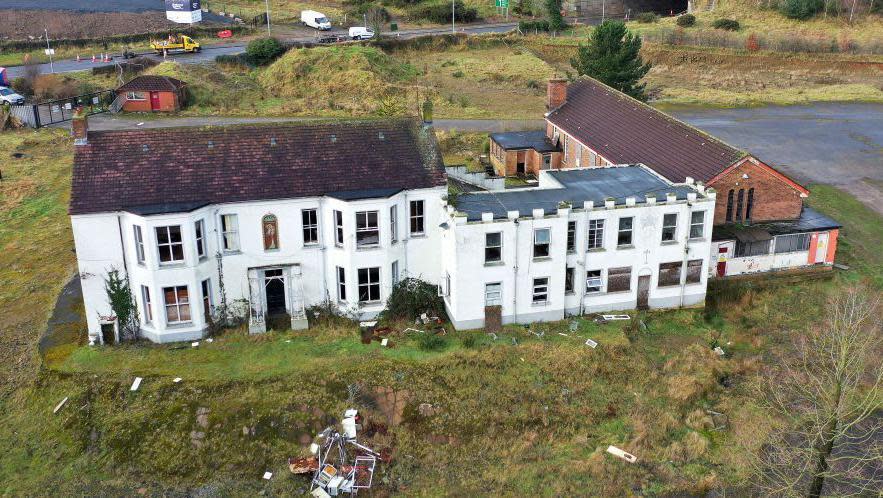
'Nothing's ever been done'
Mark and Marie have spoken out to try to encourage as many people as possible with knowledge of the institutions to take part in the consultation.
They broadly welcome it, but both have concerns about the posthumous payments only being issued for victims who died after November 2021.
“It would exclude the vast majority of birth mothers and adoptees who were affected, because they’ve passed away in the interim," said Mark.
Marie agreed with Mark’s argument that the date for posthumous applications should be the founding of Northern Ireland, in 1922.
She said: “The mothers’ trauma began when the first mother-and-baby home was opened up.
“The babies were inside the mother, so that’s where their trauma started.
“Some of the mothers were raped, or were victims of incest. Nothing’s ever been done about that.”
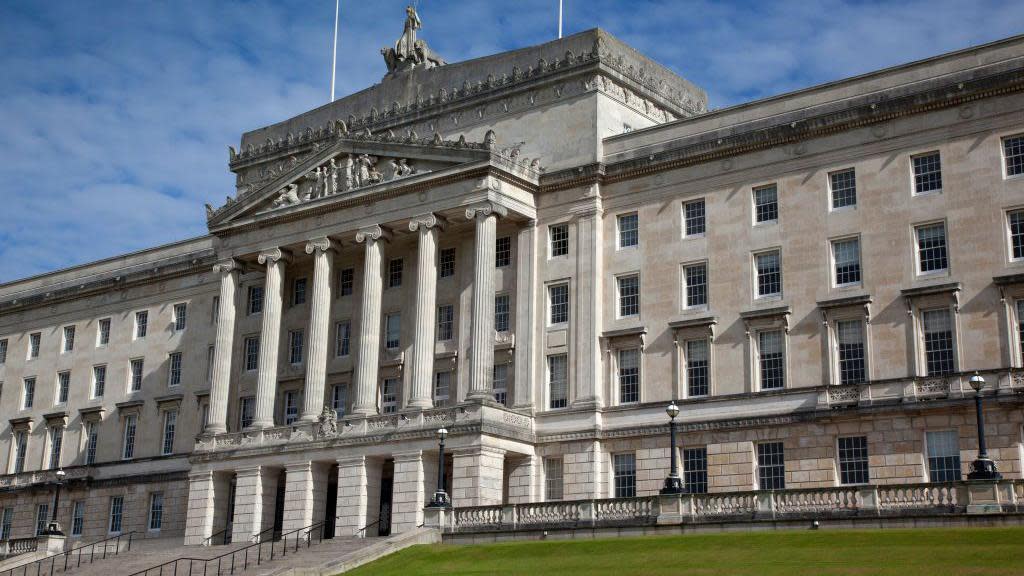
The inquiry and redress scheme is the responsibility of the Executive Office in the power-sharing devolved government – which is the department of the first and deputy first ministers.
In a statement, the department said the consultation covers “important acknowledgement, rights and privacy matters, and it is important that we hear the views of as many people as possible to help inform any future decisions.
“We will listen carefully to the views of all victims, survivors and their families, appreciating that there may not be a consensus view.”
The consultation is open until 19 September when ministers will then bring forward legislation.
Another aspect of the investigation is already up and running.
An independent panel is gathering testimonies from survivors and others – confidentially if they wish.
The information will be fed into the public inquiry, where institutions and state agencies will be questioned.
'Not everyone wants to go public'
Mark and Marie – who are members of the support group Truth Recovery NI – want to reassure people who are reticent to come forward about such sensitive matters.
Marie said: “We know that not everyone wants to go public.
“You don’t have to – you can fill in the consultation questionnaire anonymously.”
Marie eventually made contact with the son she had in Dublin, just before his 40th birthday.
“He was living in my home town," she said.
“It could easily have been that my children would have met him somewhere along the line.
“This is another one of the laws we want to change - if a child is adopted, they need to know when they get to a certain age if they have siblings.”
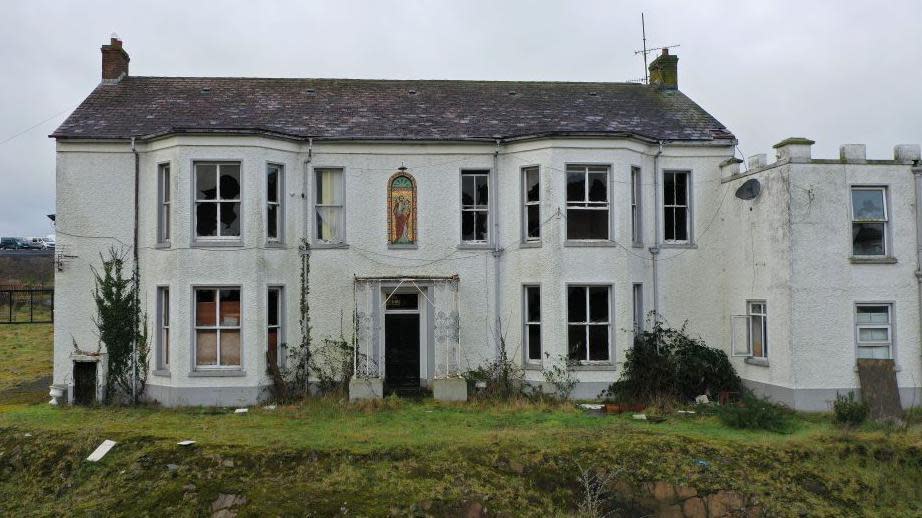
Mark found out who his birth mother was a few years ago.
Sadly, Kathleen McGuire had died two decades previously.
“I also found out that she tried to contact me,” he said.
“My birth certificate showed I had originally been called Paul Anthony McGuire – so she had been looking under that name, and couldn’t find me.”
Marie talked of the “shame and stigma” which still existed; Mark said “significant trauma” had left a lasting legacy.
They retain hope that the harrowing truths of the past will be acknowledged and acted upon.





